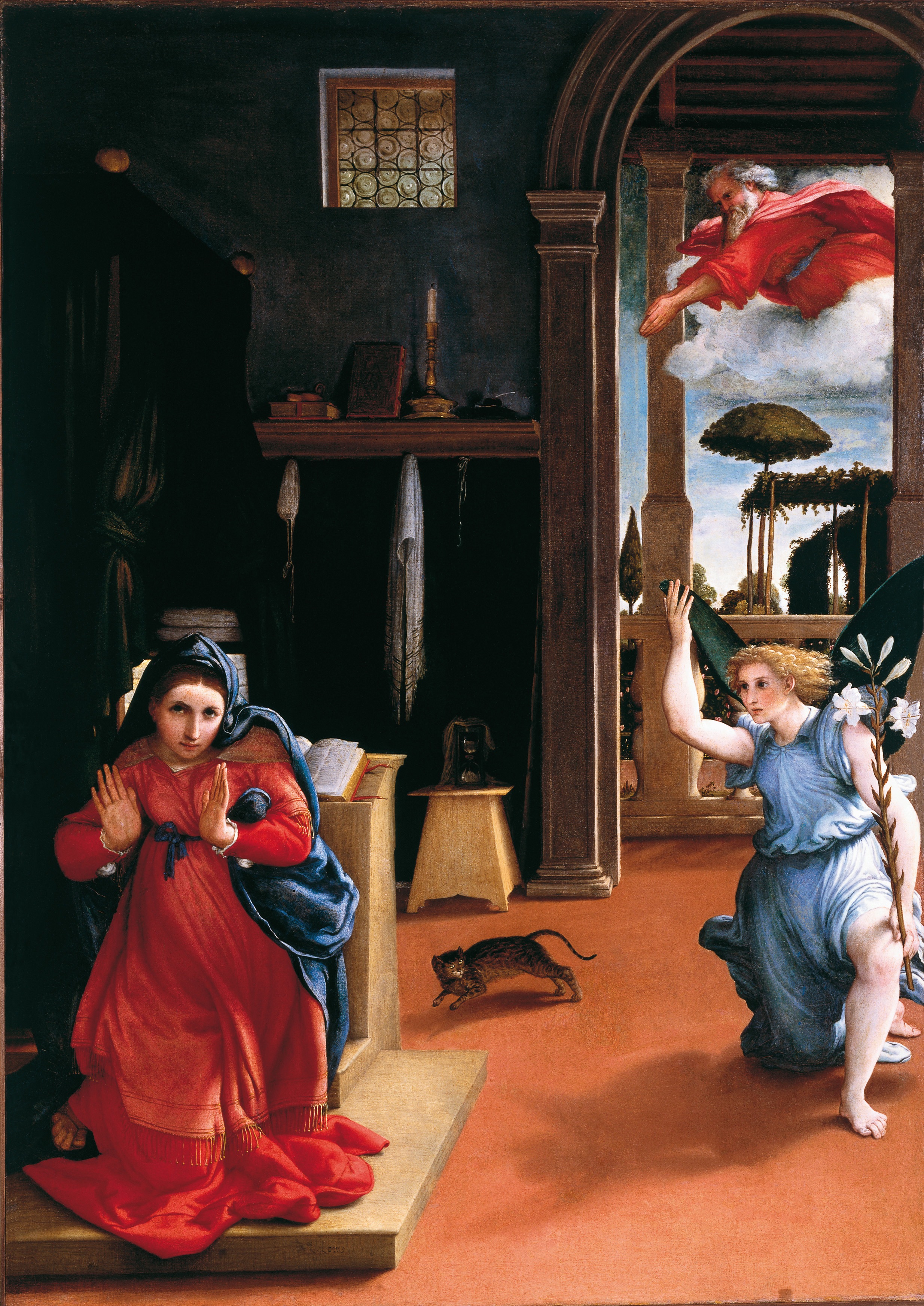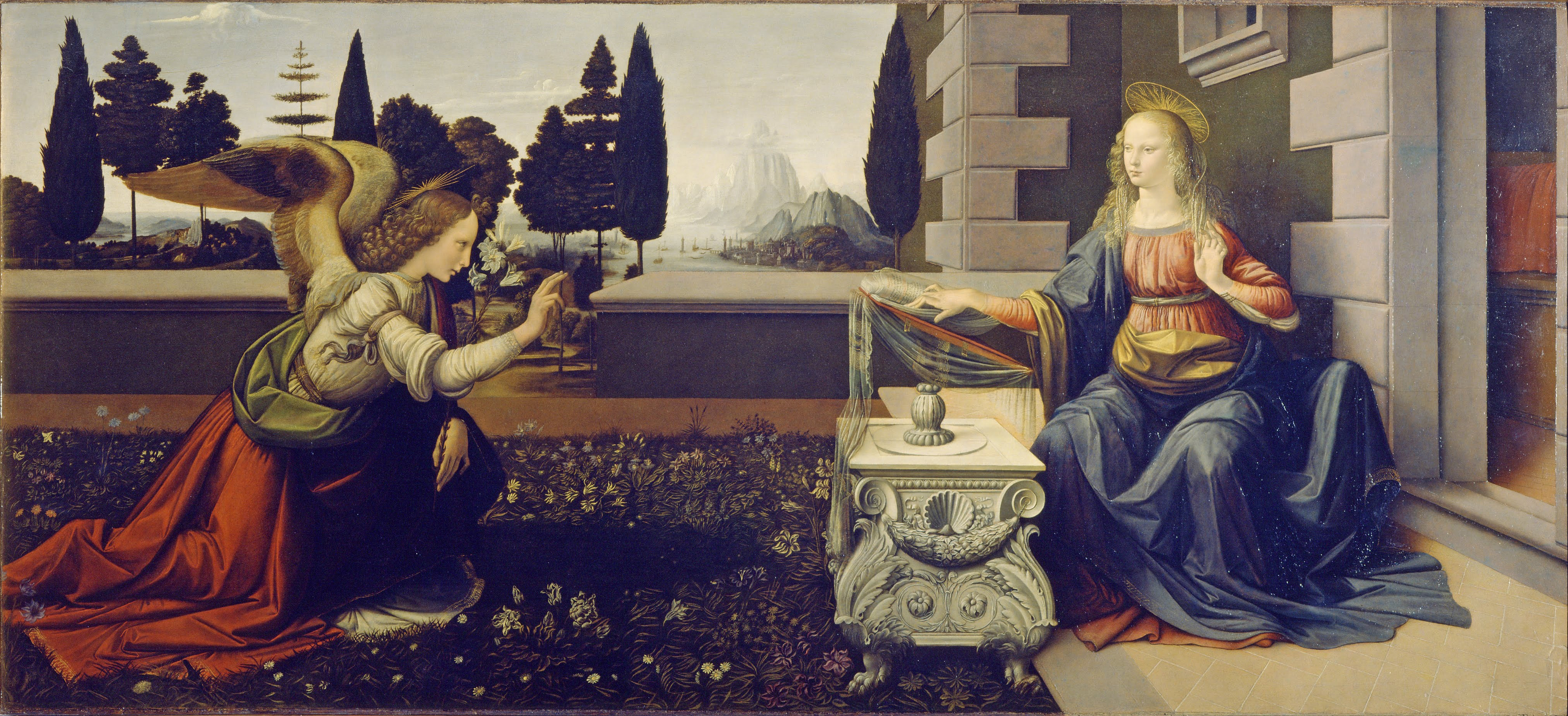A line from George Steiner's Real Presences struck me, after a week of seeing great works of art in Venice and Florence -- more than a few portraying the subject of the Annunciation.
Here is Steiner:
"In Lorenzo Lotto's Annunciation, one of the most unsettling, haunting versions we have of this inexhaustible theme, the Lady turns her back on the rushing radiance of the Messenger. That, too, is possible."
In the Uffizi Gallery in Florence, early in the endless rooms filled with one spectacular Italian painting after the next, is an Annunciation that is even more shocking than that of Lotto. From two hundred years earlier, in 1333, is a painting of a scowling Mary, giving the angel Gabriel a look that could kill. His scowl suggests that the painting describes a "conversation" in process, with his anger following her resistance to the call.
More placid on the surface, but more mysterious the longer you look at it is Leonardo's Annunciation, further on in the Uffizi galleries. Painted in 1472, it seems to capture a more placid Mary, accepting her call. But is it so? She has her fingers pushed firmly into a page from the book she is reading. It is the gesture of someone who has found something of importance there. Or someone who does not want to lose her place, and is perhaps not pleased by the interruption. The wall of the garden she sits is said to be a symbol of her virginity. But there is an opening in the wall, and access to the glorious landscape beyond, green and tame in the foreground, and more dramatic and sublime in the distance. Is this the world she is dreaming of, or reading of, or fantasizing about when interrupted with the call of Gabriel? Is her distraction the cause of his intense stare and fingers held high, as if to grab her attention. Is she not looking beyond him?
That Christian divine call can be transposed into a secular or non-denominational divine call. I am taken with Steiner's use of this to describe our reaction to art, writing, music -- and what he would call the divine that has to lie behind the response. But we also have the freedom to reject the gesture of the artist, the writer, and the musician, to turn away from the power of those creations.



No comments:
Post a Comment